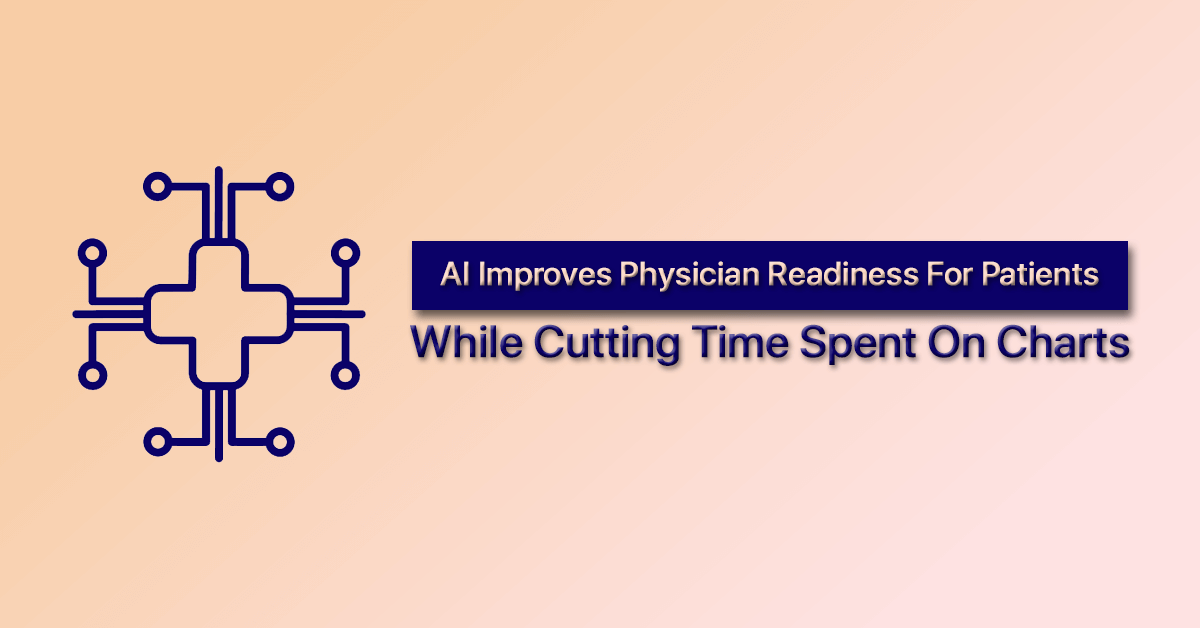Computerized artificial intelligence (AI) cut the time primary care physicians spent sifting through patient charts – but helped them feel better prepared for patient visits.
The findings were part of a study by the American Academy of Family Physicians’ (AAFP) Innovation Lab. AAFP worked with a computer program developer to test its AI Assistant program in a 30-day trial with 10 physicians in three practices.
After at least 991 patient encounters, the doctors reported a 61% decrease in visit preparation time, a 25% increase in diagnoses found, and a 37% increase in risk adjustment factor scores. Every participant said they would recommend the AI Assistant to a colleague, according to the study, “AI Assistant for Clinical Review To Reduce Burden and Improve Quality and Value-Based Care Outcomes,” announced by AAFP on Dec. 6.
“The dramatic impact on these family physicians suggests that an AI Assistant for Clinical Review may be an essential technology to optimize the family medicine experience,” the report said.
“Chart review is a significant burden for physicians today using just an EHR,” or electronic health record, AAFP vice president and chief medical informatics officer, said in a news release. “In our lab, we saw the promise of leveraging an AI assistant for clinical review and look forward to further understanding these technologies’ positive impacts in care delivery and transition to value-based care.”
The results will get further study in a Phase 2 Innovation Lab where AAFP and Navina will study the adoption of an AI Assistant for Clinical Review by 100 family physicians, the report said.
The report noted physician clerical burdens devour time in and out of the office. Meanwhile, billions of dollars in investment in AI have produced health apps and software that increase burdens and burnout for physicians instead of improving patient care.
Family physicians spend more than 1.5 hours a day conducting chart reviews in support of patient care. The AI Assistant aims to scan patient charts and provide physicians with “a problem-oriented summary of the chart,” eliminating the need for doctors to search and click through lab work, diagnostics, referrals, consultation notes, discharge summaries, and more.
Participating physicians used a five-point scale to rate feelings of burnout, from 1, or no symptoms, to 5, completely burned out and possibly in need of help. Their average rating dropped from 3.4 before the AI Assistant, to 2 after using it, equating to the feeling “I am under stress, but I do not feel burned out.”
Preparation time for complex patients decreased from 14.1 minutes to 5.5 minutes. Physicians reported being fully prepared for 54% of visits before using the program, and for 81% after using the AI Assistant, according to the study.
“The dramatic impact on these family physicians suggests that an AI Assistant for Clinical Review may be an essential technology to optimize the family medicine experience,” the report said. AAFP noted the study worked with electronic health record programs that allowed for interoperability.
“The entire family physician membership have many different EHRs which are harder to integrate with, slowing the implementation of any third-party innovations,” the report said. “This remains a key challenge for any innovation that needs robust data exchange with the EHR. It continues to be an area of advocacy for the AAFP.”
For More Information: https://www.medicaleconomics.com/view/ai-improves-physician-readiness-for-patients-while-cutting-time-spent-on-charts

